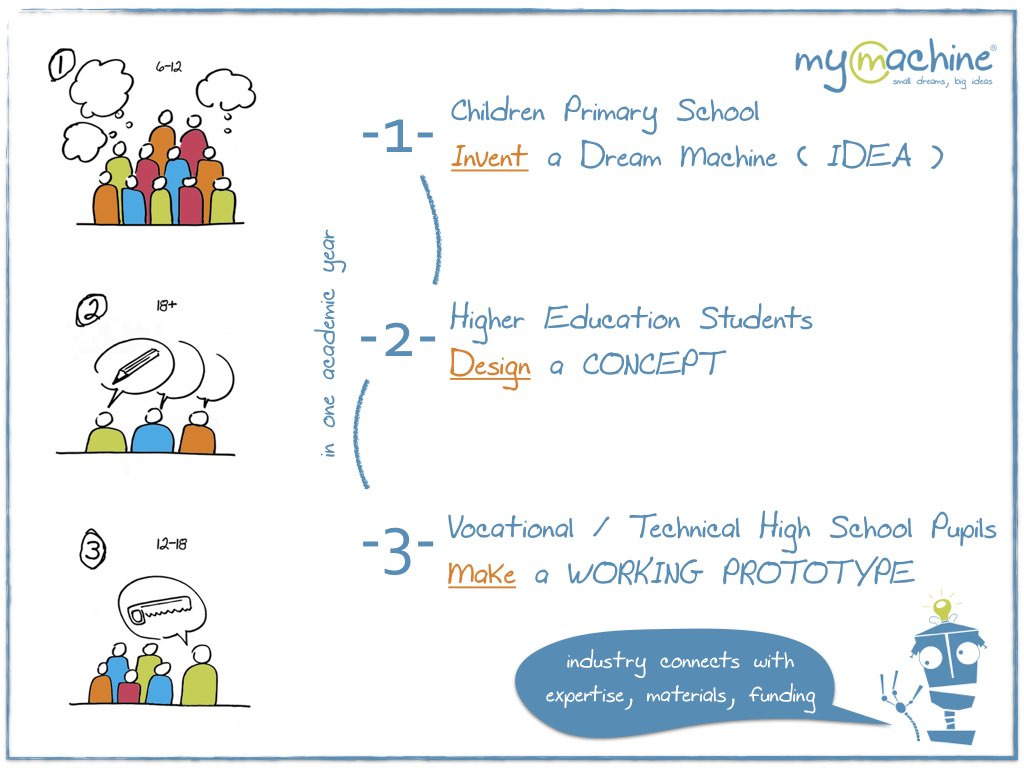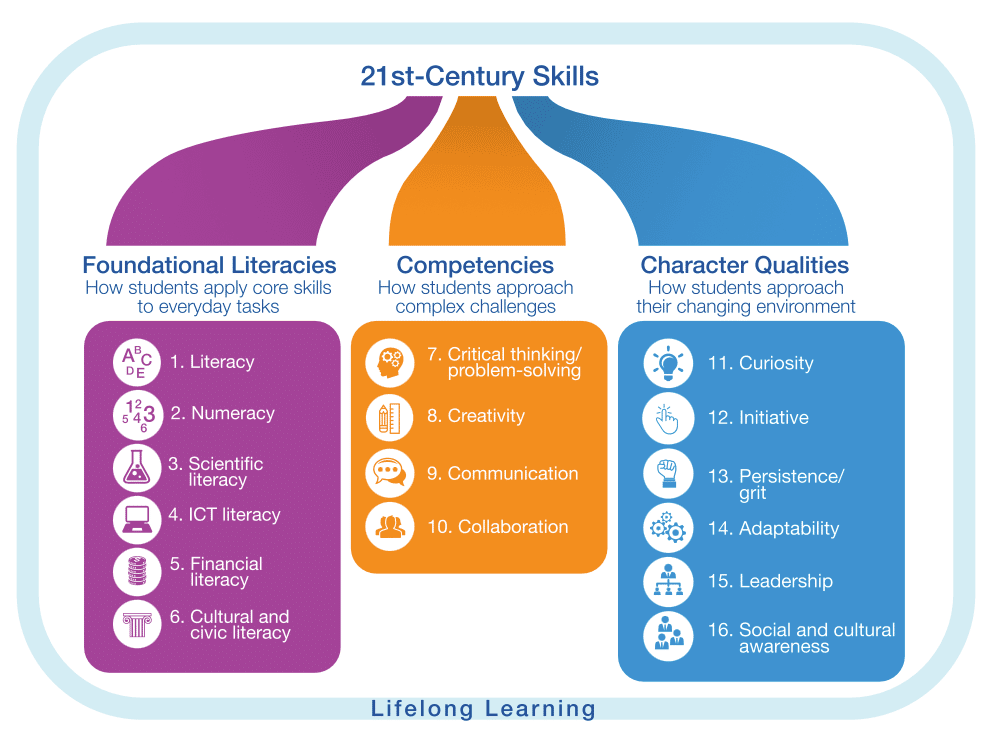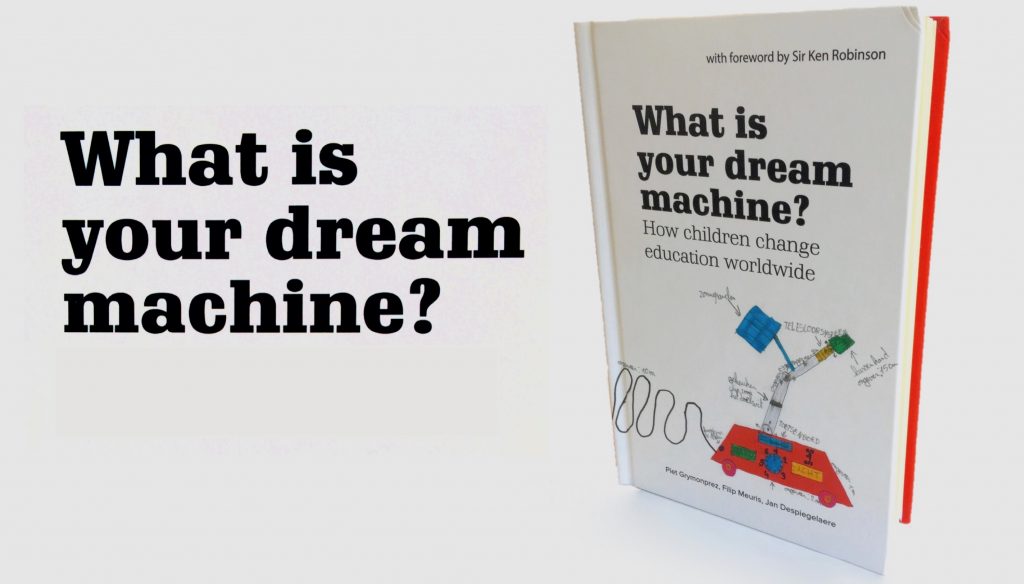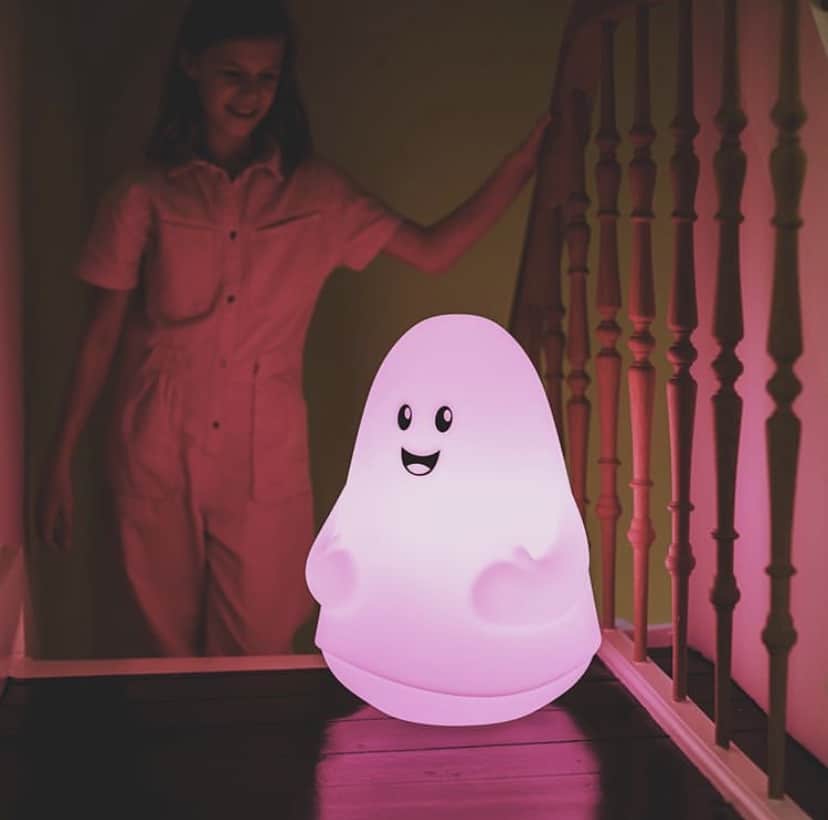We tackle this deep systemic crisis
— in which brilliant minds are turned silent because they still dare to think differently and creatively —
While we —the adults— are experts in boycotting our ideas and those of others: ‘won’t work’, ‘budget’, ‘deadlines’, ‘legislation’, ’time-to-market’, or a plain ‘impossible’…, children are not. They still see potential in almost anything. And we can learn so much from that because it’s those so-called ‘crazy’ ideas that perhaps carry the long-term for your company, organisation, community, or the world at large.
Creative confidence and entrepreneurial spirit create the natural ability to come up with new ideas and the courage to try them out. We do this by getting past four fears that hold most of us back: fear of the messy unknown, fear of the first step, fear of losing control, and the fear of being judged.
In MyMachine, all students learn that having ideas is important and fun. We show them that you should never be afraid to share your ideas, even if they might sound ‘weird’ or ‘impossible’ to someone else. We also show them that you can actually bring any idea to life by collaborating, respecting each other’s talents, and being persistent and resilient.
This matters because no matter where life will take them —if they want to become a dancer, photographer, architect, engineer, product designer, start-up or work for an existing organisation— it all starts with having the creative confidence that your ideas have value, and are worth giving the time to let them grow because they might and probably do have the potential to make a difference!
with Our UNique Methodology

MyMachine is a collaboration with schools of all educational levels for (almost) one school year:
Step 1: IDEA :
Primary Students
Children in primary schools invent and present (via drawings, models, manuals, …) their own ‘Dream Machine’.
Anything goes: from a machine that helps you to put peanut butter on a sandwich to a machine that cleans your room. The main criterion is that it’s relevant for the child who really, really wants it.
Step 2: CONCEPT :
HIgher Education Students
Higher education students (e.g. in product design, game design, engineering, architecture, arts, occupational therapy) design a concept and produce a scale-model.
Step 3: Working Prototype : Vocational / Technical Secondary Students
The technical drawings/designs are handed over to the Technical/Vocational Secondary Schools . They build real working prototypes of those dream machines, assisted by the children who invented them and the higher education students who designed them.
These three steps are not divided. On the contrary, the whole MyMachine process is a co-creation process.
All students work together in the different stages (both offline and online). They learn from each other and use the expertise and support of a wide range of local corporations and organisations who partner with us because they share a common view on creativity, innovation, empathy and the importance of learning how to bring an(y) idea to life.
Step 4: EXHIBITION
At the end of every MyMachine Cycle, we organise an exhibition, showing everything: from the original drawings by the children, the scale models made by the university students, to the actual working prototypes. And it’s a ‘Please-Do-Touch’ exhibition: the prototypes need testing!
Obviously, the children know the Dream Machine they built, but at this exhibition, they discover that they are not the only ones. That also other classes, and other schools (even in other towns), were joining and building Dream Machines.
In MyMachine students learn that celebration as an attitude is important. It is a crucial aspect of setting and achieving your goals.
How Big Would You Dream, If You Knew You Couldn’t Fail?
Our Core Values
Creativity
Inventing a dream machine. Translating an idea into a concept. Translating a concept into a working prototype. All of these steps challenge the students to be very creative to make it all work.
Entrepreneurial skills
Creative confidence
Creative confidence and entrepreneurial spirit create the natural ability to come up with new ideas and the courage to try them out. We do this by getting past four fears that hold most of us back: fear of the messy unknown, fear of the first step, fear of losing control, and the fear of being judged.
21st Century skills
To thrive in today’s innovation-driven economy, we need a different mix of skills than in the past. In addition to foundational skills like literacy and numeracy, we need competencies like collaboration, creativity and problem-solving, and character qualities like persistence, curiosity and initiative.

Authentic Learning
Real creativity. Real ideas. Real concepts. Real working prototypes. Real promises. Real deadlines. Real budget restraints. Real production restraints. Real hard work. Real collaboration. Real teams. Real people. Real emotions. Real empathy.
Project Based Learning
Students in project-based learning classrooms significantly outperform students in typical classrooms (scoring up to 28 percentage points higher) according to four studies released by Lucas Education Research, a division of the George Lucas Educational Foundation, along with researchers from five major universities.
By making sense of the world and finding solutions to complex problems, students see that science is meaningful and personally valuable. MyMachine supports sustained inquiry around the challenge of inventing and building their Dream Machine, and carefully attends to promoting agency and reflection throughout learning.
Inter-Generational Learning
Step 1-2-3 in our methodology are not divided steps. On the contrary. The whole process is based upon co-creation, collaboration of all students of all levels, working together as peers.
Active Learning
Studies show that varying your study methods and materials will improve your retention and recall of information, and enhance your learning experience. The “learning pyramid”, suggests that most students only remember about 10% of what they read from textbooks, but retain nearly 90% of what they learn through teaching others. The Learning Pyramid model suggests that some methods of study are more effective than others and that varying study methods will lead to deeper learning and longer-term retention.

EMPATHY
Empathy is our ability to see the world through other people’s eyes, to see what they see, feel what they feel, and experience things as they do. MyMachine takes the ideas of children seriously. We listen to them. And even more, we work on their ideas, a life-changing experience for them.
The result from a 2019 LinkedIn survey asking about the most important leadership skill, defined empathy as the most important skill.
EMPowerment
Empowerment of all students is key to us! Therefore MyMachine is open-ended (we never impose a theme upon the children), and is not a competition. All students involved are winners. All ideas are winners.
Design Thinking
Students of all ages learn by doing all the core steps of design thinking, necessary to translate the invention of a new product into a design concept and a working prototype.
STEM/STEAM/STEAM-D
Science, Technology, Engineering, Arts, Mathematics, Design. MyMachine embraces technical and technological talents, creative ideas and engineering solutions. Students gain insight on what STE(A)M means in real life. They learn how these skills might trigger their future professions.
JOY and Wonder
Joy and wonder promote learning. They increase dopamine, endorphins, and oxygen. Optimal brain activation occurs when people are in positive emotional states or when the material holds personal meaning, connects to their interests, is presented with elements of novelty, or evokes wonder.
MAker-Centered Learning
Considering our focus on invention, design, and making, maker-centred learning emphasises looking closely, exploring complexity, and finding opportunity as three core maker capacities.
Much as Harvard identifies agency as a keystone in empowering maker-centered learning, MyMachine supports the development of students’ agency both as makers and as learners, by instilling participants with an I can do that attitude both toward building machines with social value and toward navigating the social system that supports learning in their community.
By placing students in a network of interacting mentors, makers, and doers the participants have opportunities to form relationships across domains of expertise and across age levels that could positively impact the net social capital of the community.
They learn that they can contribute to society, rather than just be a consumer of society.
Sustainability
The world at large needs young people to become part of a higher level of innovation which may contribute to significant reductions in environmental impacts. For that, sustainable innovation – a process where sustainability considerations are integrated into the designs of products, services, technologies, business and organisation models- is key.
In MyMachine, we empower students to dream and bring their new ideas to life. While some of the dream machine ideas might sound futile for now, by taking the young people seriously, we empower them with the knowledge that any idea matters. They will use this power of possibility throughout their lives, and it will enable them to engage in the making of future sustainable innovations.
OPEN EDUCATION
We bring MyMachine to the global community by launching official MyMachine Chapters. Once a Chapter is created, the MyMachine model creates a unique open collaboration between all educational levels. The bringing to life of the Dream Machines is a completely open process that anyone can follow and contribute to.
What Students Of All Ages Learn
Higher Education Students, Technical/Vocational Secondary Students and Primary School Children learn a lot through MyMachine:
Read Their TEstimonial
See MyMachine In Action
Expert views on MyMachine
Tom Vander Ark
Tom Vander Ark is CEO Getting Smart, author, Forbes contributor, Linkedin Top Voice in Education, previously served as President of the X PRIZE Foundation and is leading voice in education in the USA.
This video is Tom Vander Ark’s keynote at our Future of Education event -organised in partnership with our esteemed industry partner Agoria– where he explains the modern context for education and how MyMachine is stepping in:
Harvard University
dr. Christina Smiraglia is a Senior Research Manager at Harvard’s Project Zero, where she has worked on multiple projects, including Arts Festival Impacts, Learning Innovations Laboratory, Art Works at Work, and Higher Education in the 21st Century. Her research interests are focused on informal learning environments and object-based approaches, and she teaches graduate courses on informal learning research and pedagogy.
This video is Christina Smiraglia’s keynote at our An Evening With MyMachine event.
Sir Ken Robinson
Sir Ken Robinson is education and creativity expert, one of Time/Fortune/CNN’s Principal Voices, acclaimed by Fast Company magazine as one of “the world’s elite thinkers on creativity and innovation”, holds the most viewed TED-Talk worldwide and author of many New York Times bestsellers.
This video is Sir Ken Robinson’s introduction to our book.
Read More In Our Book

Around the world, new education models arise. MyMachine is one such leading example where it allows children to drive their own learning. MyMachine shines in its ability to unite and encourage collaboration among all levels in the educational system.
Leading thinkers, along with experts in creativity and education express in this book just how those participating in the MyMachine methodology can change the education system for the better.
Book written by Piet Grymonprez and Filip Meuris with amazing guest authors like:
Amy Kamarainen — Harvard University
Angela Haydel Debarger — William & Flora Hewlett Foundation
Christina Smiraglia — Harvard University
Edward P. Clapp — Harvard University
Hank Nourse — The New York Academy of Sciences
Sir Ken Robinson — New York Times Bestselling Author.
More on our approach:
LISTEN TO THE Fueling Creativity Podcast
by Creativity & Education (new york, USA)
Sometimes a Dream Machine Becomes a real Product

This is MyBOO.
The “chase-the-evil-ghosts-from-under-my-bed”-machine.
It’s a night lamp that accompanies children falling asleep, as it makes them feel safe.
You can buy myBOO to support our mission!
Read all about it by pushing this button:
Read About MyMachine In Forbes
There are numerous articles on MyMachine in different media around the world.
Here is one we are particularly proud of:

our Mission
We aim to make an impact on communities around the world by enabling young people to drive their own futures, to become the self-motivated, problem solving, creative, self-employed or team workers that companies, organisations and the world at large are looking for.
We Are A Global Network
MyMachine is a network of independent, locally led and governed partner organisations and a global organisation that works to accelerate the network’s progress. They share a common core purpose, approach, and commitment to the network’s core values when working together across borders.




